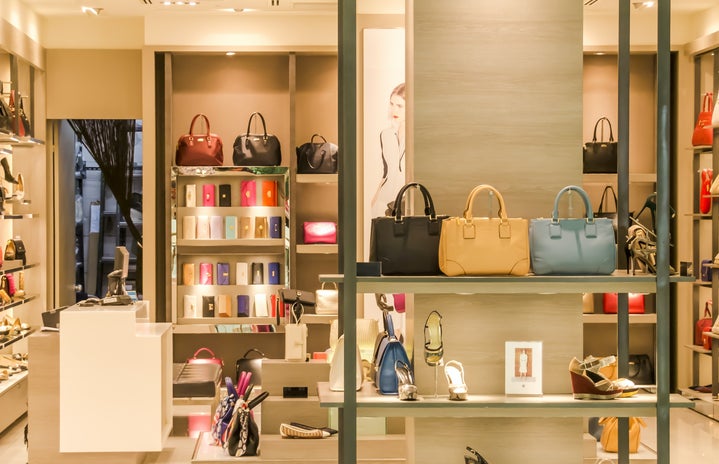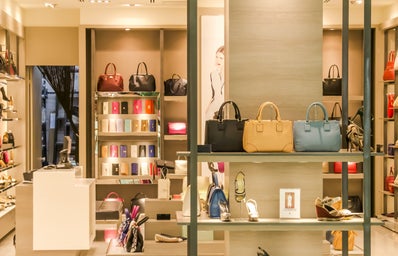Today, it is estimated that 67 percent of American women are plus size. In layman’s terms, plus size are those wearing a size 14 and up. While 67 percent is quite a large number, there is no doubt that in the media and fashion industry what people are shown and what is displayed does not entirely reflect reality. In a world where Victoria Secret models are goals and a size two is envied, the world of curves and figures have often been looked down upon or completely ignored on a scale of apperance and beauty.
But as seen in recent years, many may argue that views are transforming and the ideas of beauty is broadening.
Everyone by now is familiar with “Real Beauty,” Dove’s positive campaign that promotes the idea that all women possess beauty, no matter outward appearances. Coming off this success, other companies such as Always have also jumped on the bandwagon of empowering the young girls and women of today. Successful campaigns like these have perpetuated the idea of modified beauty standards and added to discussions of empowerment and body positivity. Yet even with this success, larger women and plus size females, continued to be the small minority of those idealized as beautiful in the media, fashion industry and subsequently, in society.
Considering this issue, Lane Bryant, one of the leading plus size clothing corporations, launched the #ImNoAngel movement in efforts to celebrate women of all shapes and sizes (while taking a jab at Victoria’s Secret’s controversial “Perfect Body” ads). The campaign spread across TV, print and social media, aiming to redefine society’s traditional vision of sexy and beautiful.
With confidant campaigns such as #ImNoAngel, came confidant models ready to challenge and defy the expectations of the runway. Now more than ever, a surge of plus size models have began to broaden the industry’s view of beauty and promote the idea of positive body image, representing all women who may have a little few extra curves. Here are just three phenomenal models who are at the forefront of a movement, shaping the idea of being beautiful in today’s conscious society.
Ashley Graham
Photo from Graham’s Instagram.
Strutting runways all over the world, Graham is perhaps best known for gracing the cover of Sports Illustrated’s past Swimsuit Issue. In a way, Graham has become the poster child for plus size modeling, challenging all those in her industry that beauty indeed comes in all shapes and sizes. Spreading her message through countless interviews and even TED talks, Graham proves that she may be a model, but is certainly no one trick pony. Graham has been instrumental in breaking barriers, demonstrating how the work of plus size models can go far and beyond – even in the realm of sexy, stylish lingerie. Creating her own lingerie and swimsuit line, Grahm is not only opening doors for those in the fashion industry, but giving all women with curves some major confidence.
Barbara “Barbie” Ferreira
Photo from Ferreira’s Instagram.
This teenager dominates social media with her fire personal style, unfiltered personality and untouched photos. On Instagram, Barbie spreads a message of confidence and body positivity, striking a chord with hundreds publications and in return gaining thousands of followers. The next time you’re in American Eagle, look out for Barbie. She heads the company’s arie Real campaign. With unretouched photos, Barbie has helped this campaign inspire girls everywhere with the idea that our differences is what gives us beauty.
Philomena Kwao
Photo from Kwao’s Instagram.
A triple threat, Kwao is a model, writer and humanitarian. Confronting issues of not only body image, but also racial discrepancies in the fashion industry, Kwao’s push for inclusivity is truly admirable. In an interview with Daily Mail, Kwao admitted, “Growing up, I had body confidence issues not really so much because of size, but my skin color. I had trouble recognizing that the depth of my skin tone is really beautiful because whenever people referred to a beautiful black-skinned woman, you’d see Beyoncé and Rihanna.” Helping to change the world and its discussions, in 2104, Kwao established The Lily Project, which is an open forum for young women to discuss matters stretching from image to feminism.
These women are just a few of those that are at the forefront of this movement, working to redefine what it means to be beautiful. Us at Her Campus at College of Charleston are so proud of the work they are doing and know that it is key in the movement to love our bodies.

